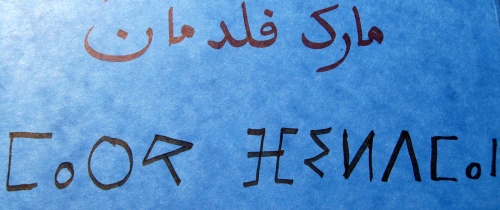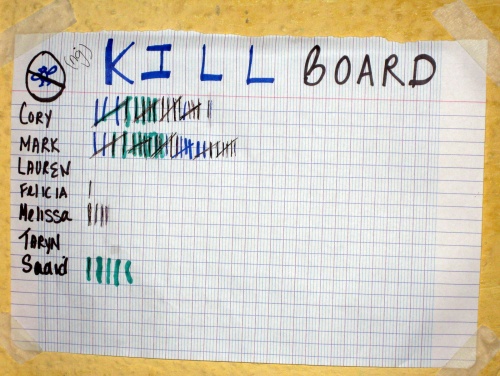I missed my host brother’s wedding. Ever since I arrived here over a year ago, my host family has been talking about this wedding and my crucial role in it; like the previous volunteer at our host sister’s wedding, it was written that I would be the photographer and token foreign dude singing songs in Tamazight. Unfortunately, the stars didn’t align and I was asked to present at two Peace Corps trainings the same weekend of the wedding, thus giving my community a new reason to claim my inferiority to the previous volunteer (I highly doubt it will dethrone any of the top 3 most-frequently-cited reasons: 3) “The other American used to buy meat and bring it over to our house,” 2) “The other American bought new desks for the preschool,” and my personal favorite, 1) “The other American took my kids to Rabat when they had heart problems, paid for a deposit so they could stay in a private hospital, and arranged for them to see heart specialists.” Yes, that really did happen, and yes, that’s a tough act to follow, especially when you don’t think it’s within the role of a Peace Corps Volunteer to do something like that. But more on that another time…).
Fortunately, I was able to do one favor for my family. Moroccan weddings generally involve inviting the entire extended families of the bride and groom to stay at the house of the wedding and inviting the entire community to attend the party, packing the house to the brim with people. So I didn’t think it too strange when my family asked me if they could use my living room to store some of their furniture for a few days while the wedding was going on. I assumed this was a standard request and considering they housed me for 2 months in their living room, the least I could do was let them put a few chairs and ponges in my living room while I was away at the trainings. So I gave them my key, kindly asked them to stay out of my bedroom and restrict who is allowed in my house, and left for work.
A week later, traveling since 5:30AM, I returned to my house at 6PM in the aftermath of the wedding. “Aftermath” seems to be the best way to describe it, since weddings in my town begin at 11PM and last until 7AM, so everyone who attended is essentially wrecked the next day. Exhausted from travel, I trudged towards my door, barely noticing the soiled diapers and tighty-whities strung on the olive tree in my front yard. Here I should interject that part of me had dreaded coming home– I trusted my host parents implicitly, but my host brothers seemed apt to use my house as a safe-haven of debauchery if they managed to get a hold of my key. I opened the door, half expecting to find broken bottles and piss stains on the wall. As I stepped in, I heard a fan running– not my fan– and I turned the light on and looked into my living room where the furniture was to be stored. The room included, among other things: a fan, a large refrigerator (plugged in and quite loud), a stack of clothing– men’s and women’s, thrown around as if people had been dressing there–a few random sacks of food, a queen-sized bed complete with its wooden frame, and, notably, my host father asleep on it.
Knowing I should be surprised but too tired to actually feel surprised, I took off my backpack and walked through my house assessing the situation. My bedroom was untouched; my kitchen included a washer-dryer but was otherwise as I left it; and my hallway was unchanged except for a new floor plant, placed next to the mirror in the corner– exactly where one would put it if one had such a plant and were inhabiting my house. I went to the bathroom which included a few new toothbrushes, soap bars and shampoo bottles, at which point my exhausted mind finally concluded, with the kind of detached interest one might feel after dosing off during a mystery film and waking up during the reveal, that my host father and perhaps some number of family members were living in my house.
Despite the awkwardness of the situation, and the aforementioned underwear hanging on my olive tree, I was mostly grateful for this opportunity to lend a hand (or a bedroom) to a family that has done so much to welcome me in Morocco. I didn’t know how long it would be before I’d have my house to myself (turned out to be roughly 24 hours), nor did I know exactly how many people had slept in my house or planned to in the future; but I felt lucky to return the favor in this particularly appropriate way. After all, how many volunteers get the chance to host their host family?
I walked back to the living room and looked again at my sleeping host father who stirred at my presence. “ahh Mbarek… salaam…… let’s …have tea,“ he croaked in that half-awake, he-wasn’t-supposed-to-see-this kind of way.
“Your house or mine?,” I asked.





